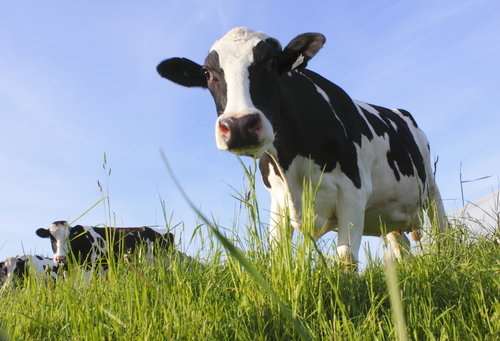Grassland Dairy is reducing its intake from producers
By Diego Flammini
Assistant Editor, North American Content
Farms.com
Some dairy producers in Wisconsin are looking for buyers after one of the state’s processors announced it’s reducing intake from dairy farmers.
“Grassland recently made the difficult decision to reduce our milk intake volumes. After years of selling milk product into Canada, our Canadian partners notified us that, due to their new Canadian dairy regulations, they would stop purchasing our products effective immediately,” Grassland Dairy Products said in a Facebook post.
“The Canadian business affects Grassland up to 1 million pounds of milk per day. After evaluating and adjusting as much milk as possible, we were forced to decrease our milk intake.”

The regulations cited by Grassland is a strategy by Dairy Farmers of Ontario to create a new milk ingredient class, allowing Canadian ingredients to be more competitive domestically. This strategy could also be enforced nationally in Canada.
Prior to Canada’s motion, Grassland sent more than 1 million pounds of ultra-filtered milk, a protein liquid concentrate used in cheese, across the border daily and duty-free.
But now American producers find themselves with a surplus of milk.
“There was no way to know that we, as a dairy, and 74 others would be the ones to get picked off,” Kristina Hopkins, a producer from Oconomowoc, told the Milwaukee Journal Sentinel. “Right now the imminent struggle is what do we do with 12,000 pounds of milk a day?”
“I’ve never encountered anything like this before,” dairy farmer Frank Behling told the Wisconsin State Journal. “Finding a new processor fast (to replace Grassland) is my priority.”
And American dairy organizations are seeking help from the President.
The National Milk Producers Federation (NMPF), U.S. Dairy Export Council and International Dairy Foods Association issued a joint statement urging President Trump to fight back against “protectionist Canadian trade policies.”
"Canada's protectionist dairy policies are having precisely the effect Canada intended: cutting off U.S. dairy exports of ultra-filtered milk to Canada despite long-standing contracts with American companies," Jim Mulhern, president and CEO of NMPF said in the statement.
"American companies have invested in new equipment and asked dairy farmers to supply the milk to meet demand in the Canadian dairy market. This export access has suddenly disappeared, not because the market is gone, but because the Canadian government has reneged on its commitments."